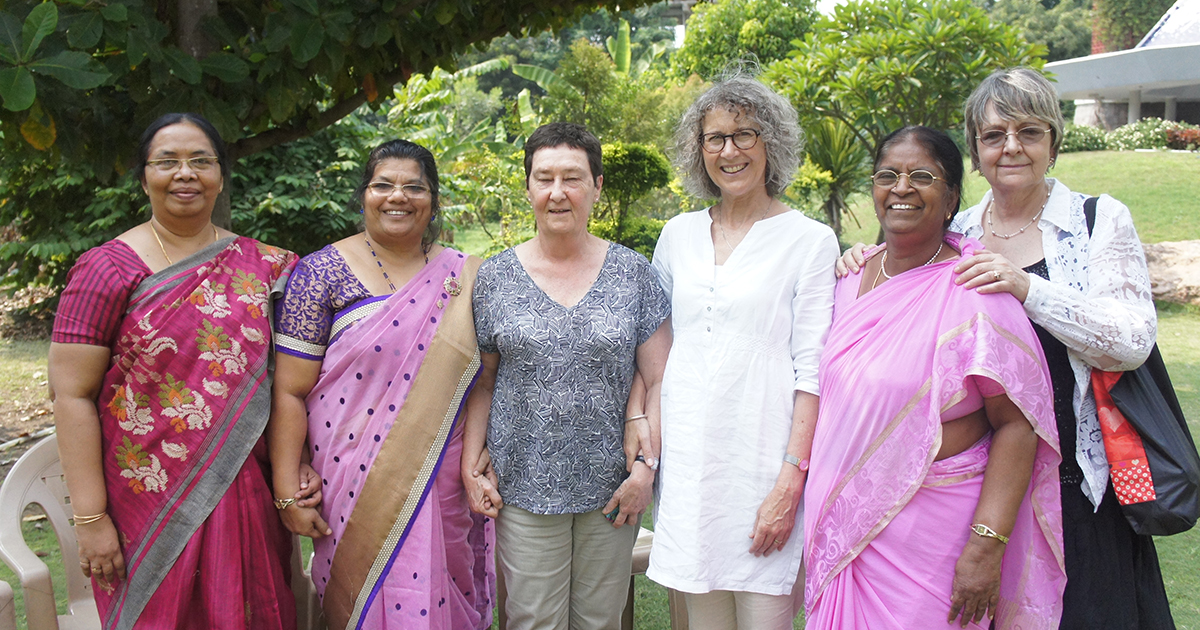Thursday, March 8 marks International Women’s Day. In countries around the world, rallies, celebrations and demonstrations will be held to acknowledge the achievements and the struggle that women experience for equal rights.
For Anglicans, the global nature of the struggle for women’s rights and gender equality is reflected through networks in our worldwide Anglican Communion. Chief among these is the International Anglican Women’s Network (IAWN), an association of Anglican women with the stated aims of “working to uphold the God-given dignity of all women and girls and to eradicate all forms of gender-based inequality”.
All Anglican women are considered members of the IAWN. The IAWN focuses on promoting gender equality throughout the Anglican Communion; eliminating all forms of violence against women and children including human trafficking; ensuring equal access to education, safe water, health care, and economic power; empowering rural women who are often isolated to help eradicate poverty and hunger and to mitigate the effects of climate change; and promoting gender budgeting.
The Rev. Margaret Dempster, a retired Canadian priest currently serving in her second term on the IAWN Steering Committee, underscored the common interest for all in promoting the cause of gender equity around the world.
“It’s about solidarity and solidarity with women, but also that men partner with women [as allies],” Dempster said.
“We need everybody involved … Every man has had a mother, a grandmother, possibly a sister, daughter, nieces, and I’m sure everybody wants to make sure that everyone has a fair chance at living a full and complete and satisfying life.”
Connecting Anglican women internationally through its website, social media, and e-newsletters, the IAWN maintains a portfolio of provincial links throughout the Anglican Communion, organizing special events and providing education opportunities.
One of its current priorities is planning a face-to-face meeting of theologians and academics to develop a theological curriculum from women’s perspectives. In Canada, the IAWN organized a one-day seminar on human trafficking in 2014 at the Sorrento Retreat Centre.
Dempster noted that while women in the Global South often have different concerns than those living in wealthier northern countries, there are common struggles that affect women in all provinces of the communion.
“We’re not immune anywhere to things such as human trafficking,” Dempster said. “That occurs here [in Canada] as well. Sometimes we don’t see it, and we have to become aware of looking out for the signs that that’s occurring.”
The obstinate nature of gender inequality is still visible within church structures, she added.
“If you look at the hierarchy in the church … we do have women bishops and more women priests, but sometimes in the decision-making bodies, in the governance entities, it’s still not really balanced. So I think it’s really important for women to have a seat at the table.”
Supporting women and communities
At the United Nations, Anglican women make their presence felt and work known through membership in the Ecumenical Women coalition and their annual attendance at the UN Commission on the Status of Women.
When it comes to supporting women and communities in practical ways to advance development, the Anglican Church of Canada provides assistance through the Primate’s World Relief and Development Fund (PWRDF). Acknowledging that women in developing nations often face unique challenges, PWRDF strives to address inequality in its work by taking account of gender roles.
Women in rural areas, development program coordinator Jeanine Cudmore said, are typically “responsible for childcare, collecting water, cooking, everything … They’re also engaged in agricultural work, especially planting and weeding and all of that kind of grunt work, for lack of a better word.”
She added, “Men are more involved in the harvest and selling, so they have access to the funds … A lot of the education awareness sessions that we have are very much focusing on the role of women in the household and also in the community, and trying to improve decision-making within families, especially within couples.”
Illustrating the myriad impacts of gender inequality, Andrea Casey, program officer for the Development Partnership Program, offered the example of a PWRDF health and food security project to improve access to water.
“Women or girls are responsible for collecting water, and if the water point is quite far from the household, they spend hours collecting water that prevents them from participating in the community—or for girls, prevents them from going to school and leaves them a little more vulnerable as well,” Casey said.
“As part of health, clean water promotes a healthy community. But it’s also understanding that the distance to clean water impacts the gendered participation of women and girls as well.”
Learn more about how you can get involved to advocate locally and make an impact globally.
Interested in keeping up-to-date on news, opinion, events and resources from the Anglican Church of Canada? Sign up for our email alerts .

